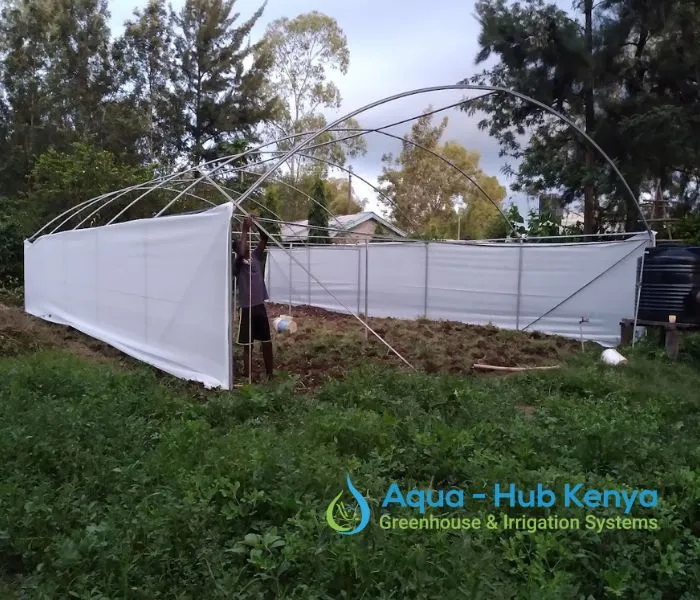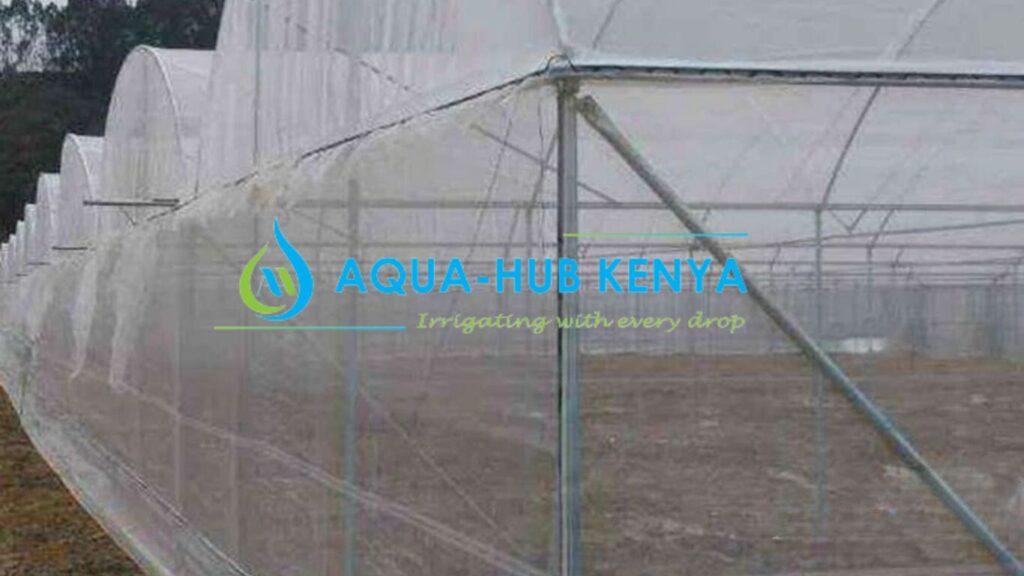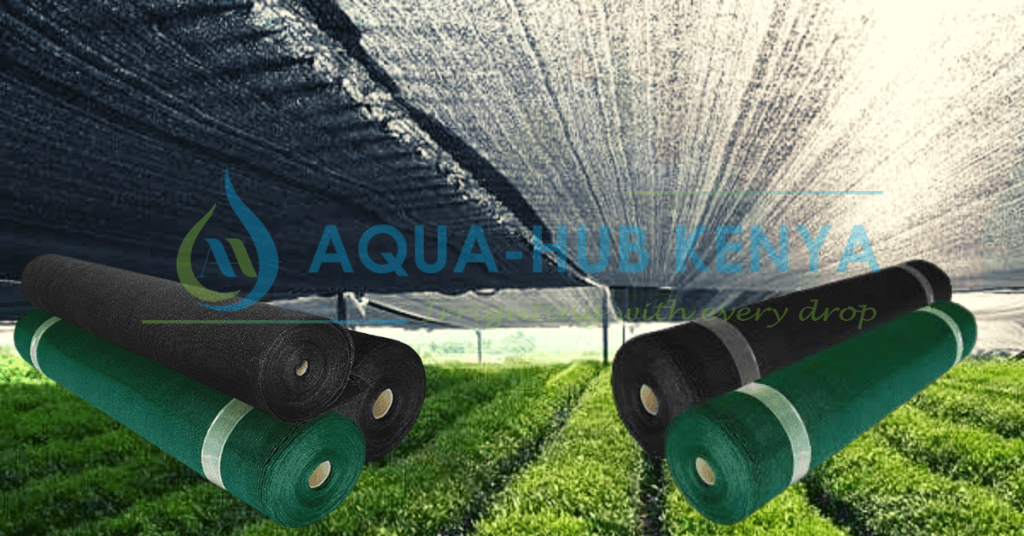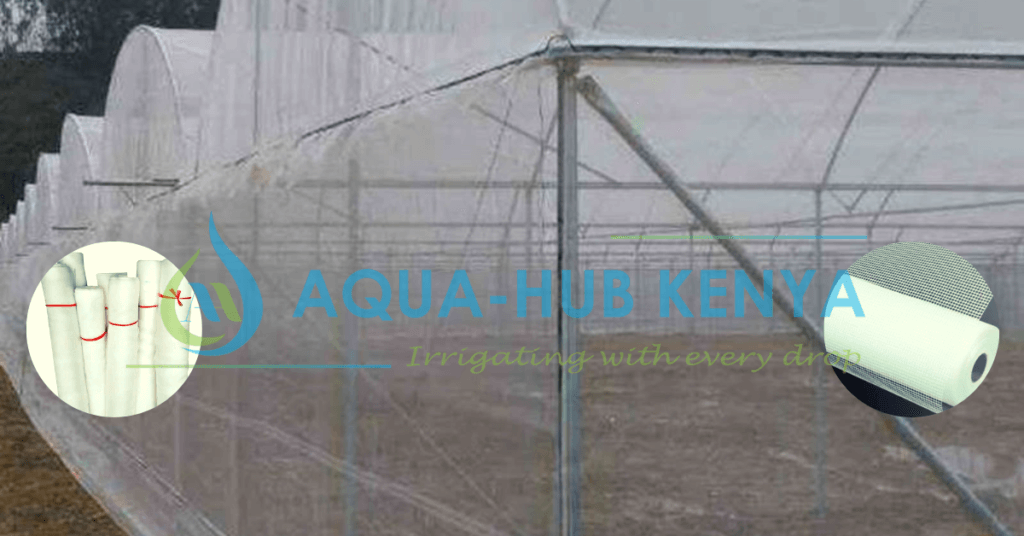Insect Netting and Its Benefits in Kenya
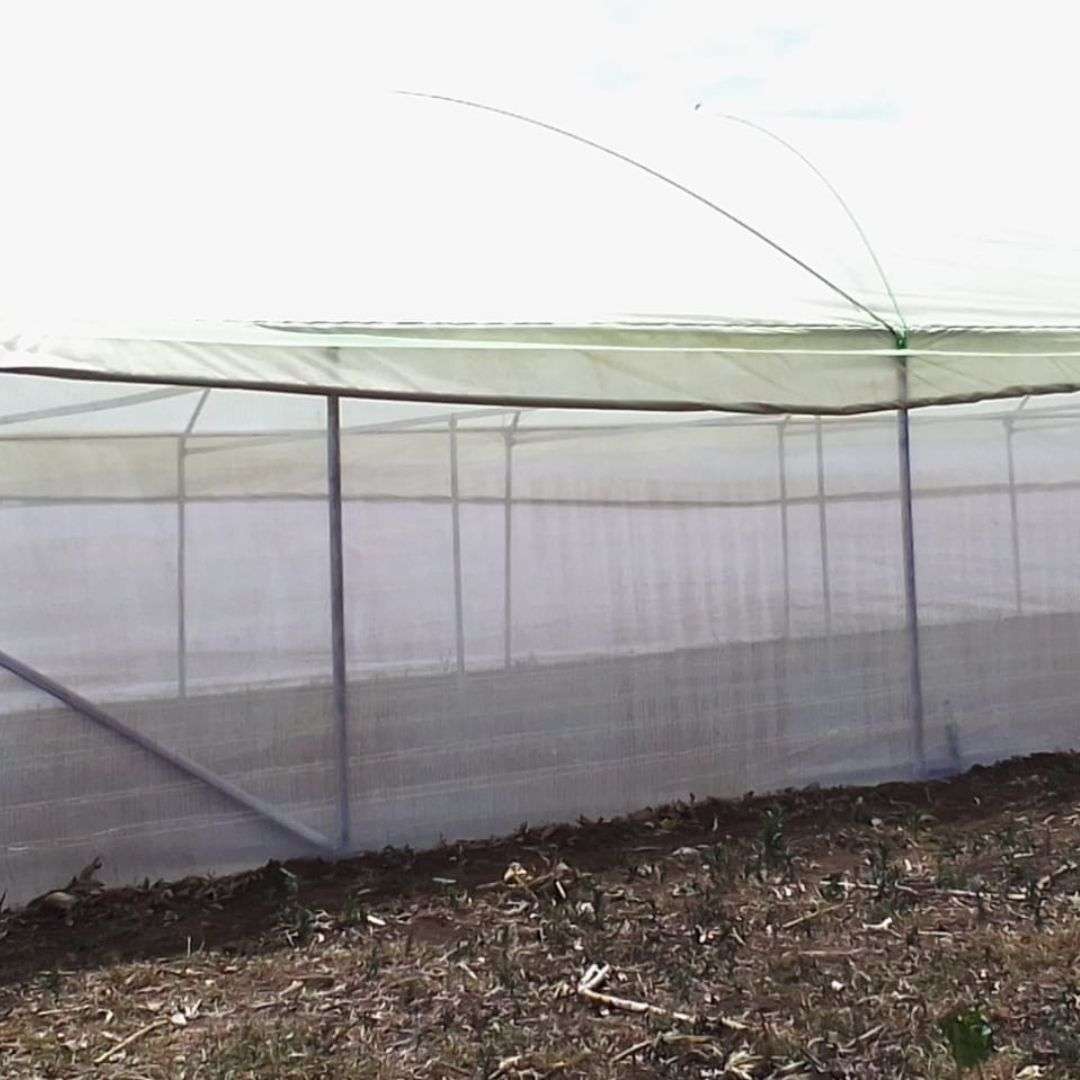
The advancement in innovation in the field of agriculture has enhanced insect netting as the primary shield against pest and diseases. An insect net has numerous benefits including a reduction in pest attacks and diseases.
Insect Netting Explained
Insect netting is the practice of using insect nets to protect crops from insects and harmful pests.
An Insect net is an effective material designed with mesh fabric net holes that can permit air and water but lock out insects.
The mesh sizes are smaller to prevent even very tiny insects from getting through. For instance white flies.
The use of insect nets is a direct organic way of reducing pests and diseases that can prevent overreliance on chemical pesticides.
Properties of Insect Nettings
- The insect netting material is made from new UV-treated polythene materials. The UV materials are the reason for the durability of the insect nets.
- Mesh sizes – These are available in different sizes according to the type of insect nets. Available from 0.15 mm to 1 mm.
- White in color
- Environmentally safe – it does not pollute the environment as it is not subject to chemical degradation.
Benefits of Insect Netting in Agriculture
- Direct Restriction on Pest and Insect Activity – By directly shielding crops from insects such as white flies, aphids, and caterpillars it reduces harm to crops. In the end, you can generate more yield on your crop produce. Moreover, there is also a greater reduction in the use of pesticides.
- Prevention of Diseases and Infections on crops – Since insects damage crops or directly result in leaves and fruit rot, infections and diseases affect yield. Insect nets therefore prevent diseases from affecting crops.
- Environmentally Friendly – Insect nets only block insects and have no harmful impact on the soil, air, water, or plants.
- Improvement in the quality of Harvests – As the design of insect nets allows for growing conditions on the crop field, the quality of production is high.
- Climate Regulation – Insect nets despite their light nature can still reduce the impact of heavy rains and hailstones on crops. Insect nets also reduce wind and sunlight effects on delicate crops such as seedlings.
- Cheap to Purchase and Implement – Insect nets are affordable and save on more cost that would have been spent on pesticides for more years.
- Useful in the protection of a wide range of Crops – insect nets protect many field crops. It has unlimited crop applications.
- Organic farming – the use of insect nets together with organic manure and mulching methods lowers the infection of crops and soils. It prevents environmental pollution and therefore the soil retains fertility.
How to Choose the Best Insect Netting Material
Selecting the best insect netting material requires evaluation of some factors explained below.
- Material type – Decide based on the material of the insect net. Choose a UV-treated insect net to ensure the longevity of your insect net.
- What size is your crop field – Determine the measurements of your crop field to find out the size of net you need.
- Crop type – Consider the type of crop to determine which mesh filtration level you need. Some crops attract very small insects such as white flies and require smaller mesh sizes.
Crops that Require Insect Netting
Fruits such as grapes, apples, peaches, and berries keep away moths, maggots, and aphids.
Beans, peas, and French beans are also prone to aphid attacks.
Tomatoes, capsicum, carrots, cucumbers, and pumpkins normally attract whiteflies and aphids.
Vegetables: kale, cabbage, spinach, lettuce, and broccoli often are prone to attack by aphids.
Irrigation on insect net structures is effective with irrigation methods such as micro or drip irrigation systems.
Where to Implement Insect Nets in Agriculture
- Insect nets are the preferred mesh fabric to embed in the ventilation of a greenhouse. Insects thus remain out of the greenhouse crop environment.
- Primary shield for pests and insects on open-field farming. Nets works as covers on a wooden or metallic structure.
- Nursery beds and seedling trays need shielding from harmful predator insects such as cutworms
- Solar dryers also face high insect attack risk on the food chambers. Insect nets can also be used on shelves to allow air entry and reduce insects.
- Insect nets protect Vineyards from insects such as moths and birds.
Purchase Insect Nets From Aqua Hub Kenya
We have the best insect netting materials at affordable prices. We deliver the nets for any orders made and also conduct installation.
Call 0790719020

